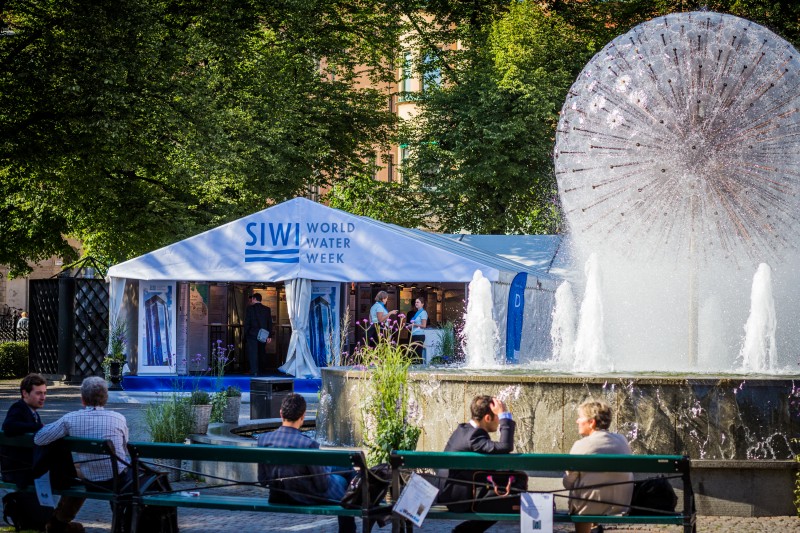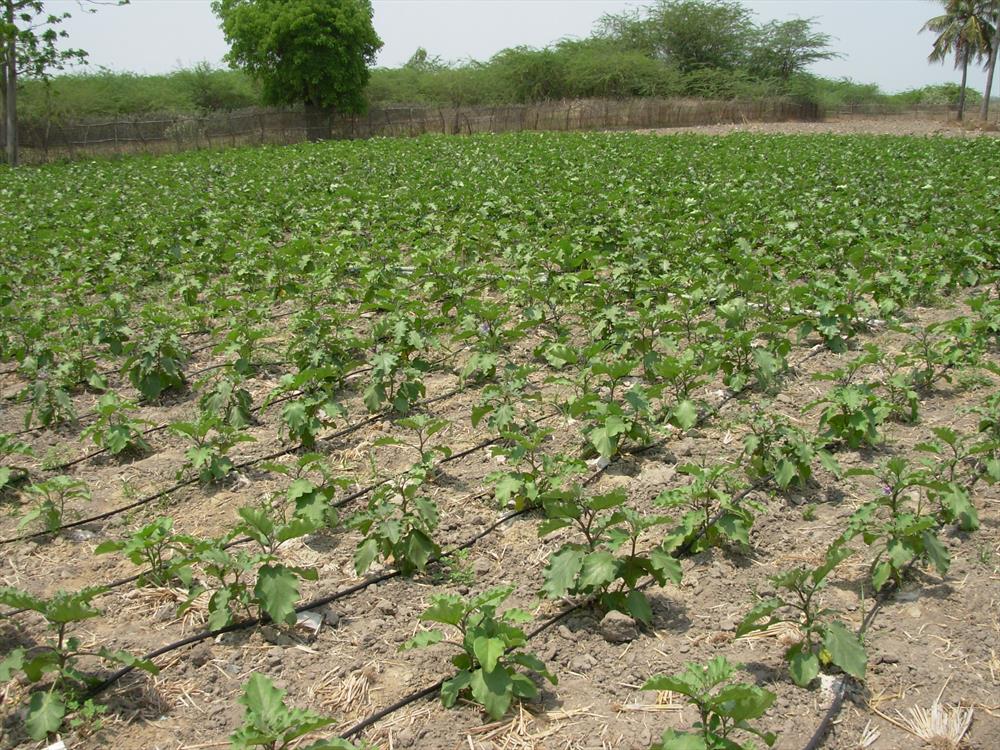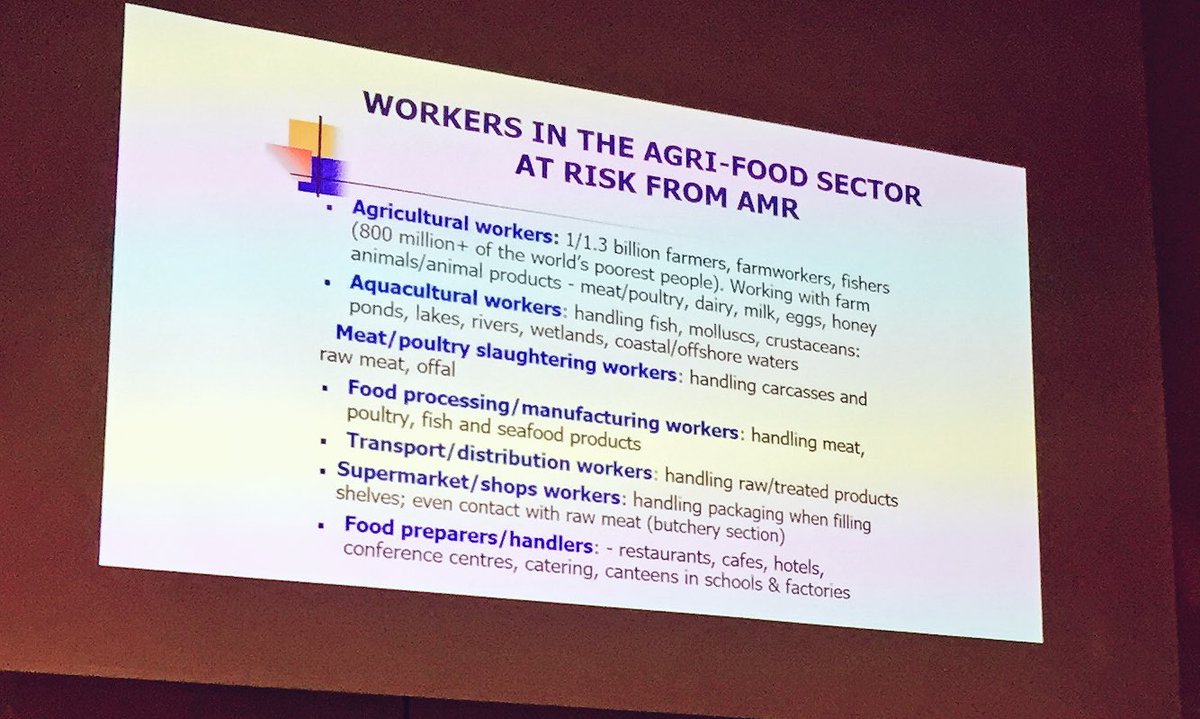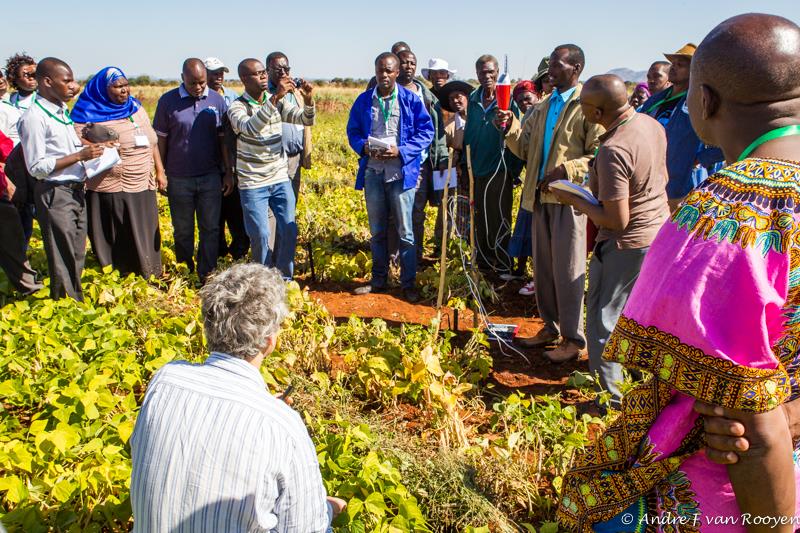 28 August - 1 September 2017. Stockholm. The World Water Week 2017 programme consists of
28 August - 1 September 2017. Stockholm. The World Water Week 2017 programme consists of more than 200 sessions of different formats and covering a range of subjects. During the 90-minute convenor events, the most relevant topics on this year’s theme “Water and Waste: Reduce and reuse” will be discussed. Topics that will be addressed include: the implementation and monitoring of the SDGs, sanitation and health linked to wastewater, financing, integrated urban water management, food related to nutrition, water in relation to conflict and fragile states and much more.
Extracts of the agenda: (with a focus on agriculture and Africa)
Driving the transformational agenda towards WASH delivery in Ghana:
Minister for Sanitation and Water Resources, Joseph Kofi Adda
28 August. How can Ghana strive to best achieve its ambitious agenda on sustainable water and basic sanitation for all by 2025? And transform capital Accra into the cleanest city in Africa to boot. Ghana’s first ever Minister for Sanitation and Water Resources has the answers.
28 August. Marks & Spencer / World Wide Fund for Nature / EDEK
A Global Framework for Action in a changing Climate was officially launched during the COP22 of the United Nations Framework Convention on Climate Change (UNFCCC) in Marrakesh, Morocco, in November 2016. The Global Framework has been proposed to respond to the increasingly urgent issues of water scarcity. it seeks to catalyse international cooperation on water scarcity in agriculture in the context of climate change and growing competition for water resources. It is a call for partners from different sectors and backgrounds to join a concerted effort.
Harnessing opportunities for the safe reuse of wastewater in agriculture
 |
| Prof Bahri of AfDB Group : wastewater reuse potential includes ability to irrigate 40 million ha |
29 August. Stockholm International Water Institute / Robert B. Daugherty Water for Food Global Institute at the University of Nebraska / International Water Management Institute / Stockholm Environment Institute
The objective of the seminar is to discuss opportunities and limits for the safe reuse of wastewater and in agriculture.
A key motivation for increasing wastewater reuse in agriculture is reduced costs, since this waste contains nutrients useful as agricultural fertilizer, along with enough water to irrigate part of all the irrigated farmland in the world. Wastewater reuse also reduces nutrient leaching to lakes, rivers, and groundwater. But how do we harness these opportunities and tap into this largely unused resource from a planning, policy, livelihoods and financial point of view? And what are the pitfalls that should be avoided to ensure safe and sustainable wastewater reuse?The AgWater Challenge: Corporate Progress and Learnings
Ceres / World Wide Fund for Nature
29 August. Ceres and WWF launched the “AgWater Challenge” in 2016 to influence and recognize corporate water-related commitments among food and beverage sector companies and their supply chains.
The “Challenge” provides unique incentives for companies to develop time-bound, measurable
 |
| Workers in the #agri-food sector often get neglected in the anti microbial resistance #AMR debate -Peter Hurst, expert on occupational health & safety. #WWWeek |
commitments that address agricultural supply chain impacts, protect freshwater, and reduce runoff and provides companies with technical assistance from leading NGOs resulting in more meaningful goals and commitments.
Last year, the Challenge recognized seven major companies – Diageo, Hain Celestial, Hormel Foods, General Mills, Kellogg, PepsiCo, and WhiteWave Foods – as AgWater Stewards. Together, the companies shared their leadership stories and released (in total) 18 new commitments to improve water efficiency, create water stewardship policies, and develop time-bound roadmaps for agricultural water stewardship.
30 August. CGIAR Research Program on Water, Land and Ecosystems / Food, Agriculture and Natural Resources Policy Analysis Network / International Union for Conservation of Nature / The Australian National University
This session considered new ways of working with irrigation communities in Africa to intensify sustainable agricultural production profitably by using water more efficiently, reducing waste of land and nutrients and facilitating socially-inclusive investment. The audience and panelists discussed the scalability of recent experiences of innovation platforms in smallholder irrigation and new business models to achieve development goals. The session shared experience from three major programs, providing guidance on how to transform smallholder irrigated agriculture in Africa and double yield with half the water by facilitating the right feedback mechanisms to develop adaptive systems. We will show how such transformation can open new opportunities to make investment in growth corridors inclusive and green and enhance the Sustainable Development Goals.
29 August. African Ministers' Council On Water and African Union Commission / African Union Commission
This session explored the implementation of new game-changing technologies, innovative institutional frameworks and well-designed business models for more effective wastewater management and improved water quality. The session Objectives were to showcase existing technologies for waste water management, Identify ways of scaling up such innovations and increased adoption, Explore innovative approaches to water quality monitoring.
AFRICA Focus - Waste to benefits: From policy to action
Building Africa’s Leadership in Sanitation:
This session explored the implementation of new game-changing technologies, innovative institutional frameworks and well-designed business models for more effective wastewater management and improved water quality. The session Objectives were to showcase existing technologies for waste water management, Identify ways of scaling up such innovations and increased adoption, Explore innovative approaches to water quality monitoring.
AFRICA Focus - Waste to benefits: From policy to action
30 August. African Ministers' Council On Water / African Union Commission
To actualize the potentials of turning waste to benefits, the need to create the right policy environment and move from policy to effective implementation becomes acute. The High Level Ministerial Panel will focus on policy options on enabling factors to support the adoption and implementation of innovative wastewater management. To set the scene and context, the High Level Panel will be preceded by a key presentation to drive policy dialogue involving AMCOW Ministers and experts.
To actualize the potentials of turning waste to benefits, the need to create the right policy environment and move from policy to effective implementation becomes acute. The High Level Ministerial Panel will focus on policy options on enabling factors to support the adoption and implementation of innovative wastewater management. To set the scene and context, the High Level Panel will be preceded by a key presentation to drive policy dialogue involving AMCOW Ministers and experts.
30 August. Safe Water Network Ghana
Ghana’s Minister of Sanitation and Water Resources, Joseph Kofi Adda, will present his perspective on how SWEs and the Trust enable reaching his country’s water supply targets.
Ghana’s Minister of Sanitation and Water Resources, Joseph Kofi Adda, will present his perspective on how SWEs and the Trust enable reaching his country’s water supply targets.
31 August. USAID, Gates Foundation/IHE-Delft, AMCOW Innovations
The purpose of this event is to update participants on sanitation leadership activities, encourage greater collaboration and innovation and identify gaps in sanitation capacity building
The purpose of this event is to update participants on sanitation leadership activities, encourage greater collaboration and innovation and identify gaps in sanitation capacity building
31 August. Federal Institute for Geosciences and Natural Resources, Germany
Pollution of industrial agriculture is often diffuse and hard to control. This makes the proper management a major challenge, even in countries with highly regulated agricultural systems. The event shows global trends of agricultural groundwater contamination and presents case studies of sound regulation and cooperative solutions with industrial agriculture.
Resources:
25 August 2017. African smallholders can double their yields with half the waterPollution of industrial agriculture is often diffuse and hard to control. This makes the proper management a major challenge, even in countries with highly regulated agricultural systems. The event shows global trends of agricultural groundwater contamination and presents case studies of sound regulation and cooperative solutions with industrial agriculture.
Resources:
- Information about World Water Week and Stockholm International Water Institute; www.worldwaterweek.org and www.siwi.org
- Online programme: http://programme.worldwaterweek.org
- Press briefings, press releases and interview requests: http://www.worldwaterweek.org/pressroom
- Video: http://www.siwi.org/mediahub, http://www.youtube.com/SIWI_water
- Livestream: http://www.worldwaterweek.org/live
- Pictures: https://www.flickr.com/photos/siwi_water
- Twitter: @siwi_water, #WWWeek
- Facebook: Stockholm International Water Institute
- Instagram: siwi_water
- WaterFront 2-3/2017 focused on water reuse: http://www.siwi.org/publications/stockholm-water-front-no-2-3-2017/
- SIWI’s latest policy brief: http://www.siwi.org/publications/freshwater-oceans-working-together-face-climate-change/
Related:
In a special series on small-scale communal irrigation in South-Eastern Africa published earlier this year, farming systems experts are calling for donors to avoid failures of the past by developing a viable, sustainable and inclusive business model for small-scale public irrigation schemes in Sub-Saharan Africa. This work is led by the Australian National University including partners like International Crops Research Institute for Semi-Arid Tropics (ICRISAT) in Zimbabwe. It was funded by the Australian Center for International Agricultural Research and the Water, Lands and Ecosystems CGIAR research programme.
Andre Van Rooyen, one of the co-authors, from ICRISAT Zimbabwe, explains the complexity of efficiently running a small scale irrigation scheme in Southern Africa. “To make these irrigation schemes more profitable and sustainable for the farming community, irrigation users should be able to experiment with different crops, watering regimes and markets. You also need to find the right farmer-centered governance so that maintenance runs smoothly, and everybody agree collectively to contribute his or her share of costs, responsibilities and benefits. This is easier said than done as you have many different actors each with their own interests and perspectives.”
Andre Van Rooyen, one of the co-authors, from ICRISAT Zimbabwe, explains the complexity of efficiently running a small scale irrigation scheme in Southern Africa. “To make these irrigation schemes more profitable and sustainable for the farming community, irrigation users should be able to experiment with different crops, watering regimes and markets. You also need to find the right farmer-centered governance so that maintenance runs smoothly, and everybody agree collectively to contribute his or her share of costs, responsibilities and benefits. This is easier said than done as you have many different actors each with their own interests and perspectives.”




No comments:
Post a Comment